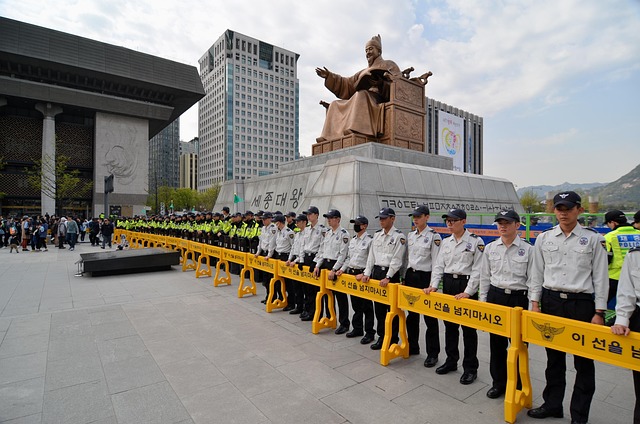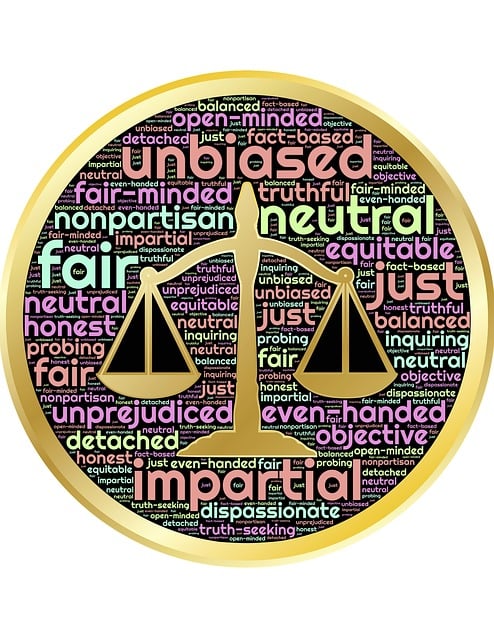The Steps in Administrative Law Proceedings form a crucial "backbone" for effective criminal justice, especially in addressing white-collar and economic crimes. This structured process starts with regulatory bodies identifying violations, triggering investigations. Based on evidence, administrative actions are taken, ensuring transparency and proportionality. Defendants have the right to defend themselves during these proceedings, which can lead to trials determining guilt or innocence with potential sentences. Law enforcement agencies play a vital role by adhering to strict protocols, fostering trust through fairness, due process, and individual rights protection.
“Unraveling the intricacies of criminal law enforcement is paramount for ensuring fair justice. This comprehensive guide delves into the vital components of administrative law proceedings, serving as a cornerstone for understanding the criminal justice system. From the initial investigation stages to the final disposition, we explore the meticulous steps that shape legal outcomes.
Additionally, we shed light on the critical roles and responsibilities of law enforcement agencies, providing a holistic view of the legal process. By deciphering these administrative procedures, we aim to empower readers with insights into the complex dance between law enforcement and the court system.”
- Understanding Administrative Law Proceedings: A Foundation for Criminal Justice
- Key Steps in the Legal Process: From Investigation to Disposition
- The Role of Law Enforcement Agencies and Their Procedural Responsibilities
Understanding Administrative Law Proceedings: A Foundation for Criminal Justice

Understanding administrative law proceedings is fundamental to ensuring a robust criminal justice system. These processes, often described as the “backbone” of legal enforcement, involve a series of steps designed to achieve fairness and justice. The journey begins with an allegation or violation, where regulatory bodies or authorities identify potential misconduct. This triggers an investigation, allowing them to gather evidence and assess the case’s merit. Once sufficient proof is collected, administrative actions are initiated, which can range from warnings to fines or license suspensions, depending on the severity.
An unprecedented track record of success in prosecuting white-collar and economic crimes has been attributed to these structured procedures. By following defined steps, authorities ensure that their decisions are transparent, justifiable, and proportional. This approach not only upholds the rule of law but also encourages compliance, as individuals and organizations understand the consequences of non-adherence. Achieving extraordinary results in criminal enforcement is thus a testament to the effectiveness of these administrative processes in maintaining order and integrity within society.
Key Steps in the Legal Process: From Investigation to Disposition

The criminal legal process involves a series of critical steps that transform an investigation into a disposition. It begins with a thorough investigation conducted by law enforcement agencies, gathering evidence and interviewing witnesses to establish probable cause. This phase is crucial in determining the strength of the case and often sets the stage for the outcome. If sufficient evidence is found, the case proceeds to administrative law proceedings, where charges are filed, and an accused person is informed of their rights. This is a pivotal moment as it marks the official initiation of legal action against an individual.
During these proceedings, defendants have the right to mount a defense, challenging the prosecution’s evidence and arguments. Skilled legal representation can be instrumental in avoiding indictment or achieving favorable challenging defense verdicts. The process culminates in a trial where a judge or jury assesses the evidence and determines guilt or innocence. If convicted, a sentence is imposed, which may include imprisonment, fines, or community service. Achieving extraordinary results in these steps, whether by winning challenging defense verdicts or achieving favorable dispositions, requires meticulous preparation, strategic maneuvering, and an unwavering commitment to justice.
The Role of Law Enforcement Agencies and Their Procedural Responsibilities

Law Enforcement Agencies play a pivotal role in upholding public safety and ensuring justice within the criminal legal system. Their responsibilities encompass much more than just responding to calls for service; they actively contribute to crime prevention, investigation, and enforcement across the country. These agencies are tasked with conducting thorough investigations, gathering evidence, and following specific procedural guidelines to ensure fairness and due process throughout all stages of the investigative and enforcement process.
The steps in administrative law proceedings are crucial to maintaining order and achieving extraordinary results. By adhering to these protocols, law enforcement can safeguard individual rights while effectively managing cases from initial reporting to adjudication. This meticulous approach guarantees that justice is not only served but also perceived as such by the communities they serve, fostering trust and cooperation across all levels of society.
In conclusion, understanding the intricate steps within administrative law proceedings is paramount for ensuring a fair and just criminal justice system. By adhering to these defined processes, from investigation to disposition, law enforcement agencies fulfill their procedural responsibilities, fostering an environment where rights are protected and accountability is maintained. This comprehensive approach is essential for navigating the complexities of criminal law enforcement, ultimately upholding the integrity of our legal framework.






